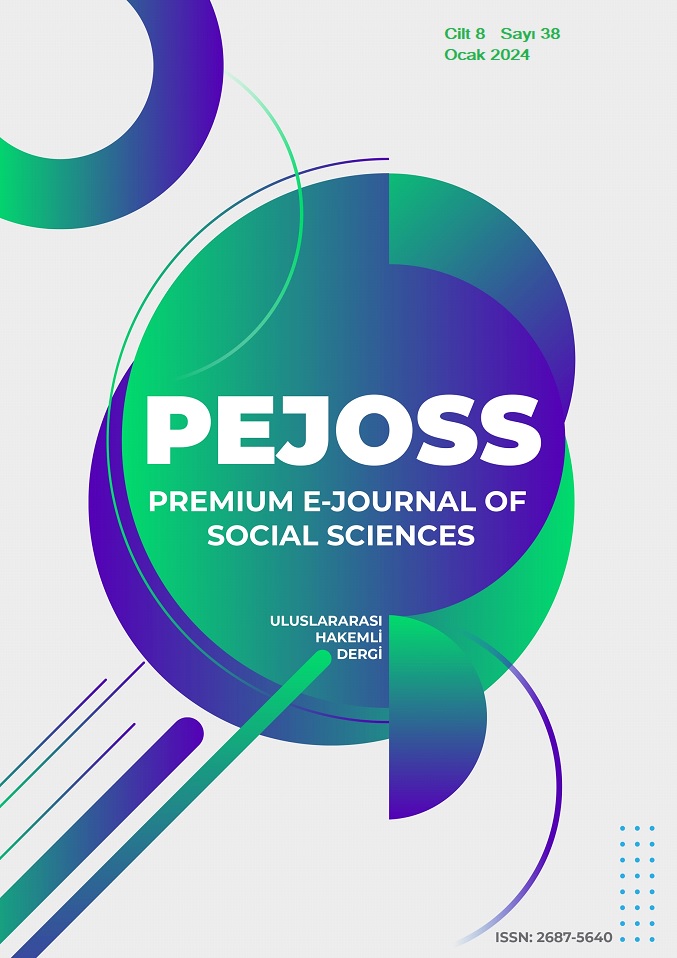A Phenomenological Evaluation of Administrative Processes
DOI:
https://doi.org/10.5281/zenodo.10616876Keywords:
management processes, school administrator, phenomenologyAbstract
In this study, it was aimed to determine the opinions of school administrators about management processes. For this purpose, interviews were conducted with 25 school administrators working in private and public schools. The data of the study, which was conducted in phenomenology design, one of the qualitative research methods, were analysed by content analysis. In the study, school administrators' views on the management processes of decision-making, planning, organising, communication, influencing, coordinating and evaluating were taken and these views were divided into themes and codes and findings were formed. According to the findings, school administrators perceive the decision-making process as theoretical decisions, organisational decisions, personal decisions, aesthetic decisions, economic decisions and bureaucratic decisions. Similarly, the planning process is perceived as acting in accordance with the law and meeting the expectations of the central organisation. The organising process, which is one of the management processes, is perceived by school administrators as providing support to in-school groups, establishing effective and open communication within the school, and taking responsibility by leading groups and teachers. Another finding obtained in the study is related to the communication process. Accordingly, school administrators categorised the communication process as personal communication, professional communication and effective communication. Regarding the influence process, it can be said that school administrators perceive this process as providing motivation. The coordination process, which is one of the management processes, is seen as resolving conflict, establishing relevant groups for in-school activities and ensuring communication-oriented harmony between these groups. According to the findings, school administrators perceive evaluation as guidance rather than inspection and need some competencies and evaluation models to provide this.
Downloads
References
Aydın, M. (2014). Eğitim yönetimi. (10. Baskı). Gazi Kitabevi.
Büyüköztürk, Ş., Çakmak, E., Akgün, Ö., Karadeniz, Ş. ve Demirel, F. (2014). Bilimsel Araştırma Yöntemleri. (16. Baskı). Pegem Akademi.
Ersoy, A.F. (2017). Fenomenoloji. A. Saban ve A. Ersoy (Ed.), Eğitimde nitel araştırma desenleri (2. Baskı) içinde (ss. 81-138). Anı Yayıncılık.
Gedikoğlu, T. (1997). Eğitim yönetimi dün, bugün ve 20001i yıllara doğru. Kuram ve Uygulamada Eğitim Yönetimi, 3, 299-308.
Gül, İ. (2017). Yönetim süreçlerinin etkililiği ölçeği: Geçerlik ve güvenirlik çalışması. Journal of Human Sciences, 14(2), 1370-1387. doi:10.14687/jhs.v14i2.4546
Güngör, S. (2014). Eğitim ve eğitim yönetiminde paradigmalar. Kafkas Üniversitesi, e – Kafkas Eğitim Araştırmaları Dergisi, 1(3), 26-40.
Kocabıyık, O.O. (2016). Olgubilim ve gömülü kuram: Bazı özellikler açısından karşılaştırma. Trakya Üniversitesi Eğitim Fakültesi Dergisi, 6(1), 55-66.
Küçüker, E. (2015). Eğitimin yönetsel temelleri. A. Tanrıöğen ve R. Sarpkaya (Ed.), Eğitim bilimine giriş içinde (ss. 155-181). Anı Yayıncılık.
Örücü, D. ve Şimşek, H. (2011). Akademisyenlerin gözünden Türkiye’de eğitim yönetiminin akademik durumu: Nitel bir analiz. Kuram ve Uygulamada Eğitim Yönetimi, 17(2), 167-197.
Özdemir, M. (2010). Nitel veri analizi: Sosyal bilimlerde yöntembilim sorunsalı üzerine bir çalışma. Eskişehir Osmangazi Üniversitesi Sosyal Bilimler Dergisi, 11(1), 323-343.
Özden, M. ve Saban, A. (2017). Nitel araştırmalarda paradigma ve teorik temeller. A. Saban ve A. Ersoy (Ed.), Eğitimde nitel araştırma desenleri (2. Baskı) içinde (ss. 1-30). Anı Yayıncılık.
Öztaş, N. (2015). Yönetim: Örgüt ve yönetim kuramları. Otorite Yayınları.
Sarıbaş S. ve Babadağ, G. (2015). Temel eğitimin temel sorunları. Anadolu Eğitim Liderliği ve Öğretim Dergisi, 3(1), 18-34.
Sucu, Y. (2018). Yönetim Nedir? Yönetici Kimdir? http://yuksekbilgili.com/wordpress/wp-content/uploads/2017/03/yonetim.pdf
Yavuz, M., & Gülmez, D. (2016). The assessment of service quality perception in higher education. Ted Eği̇ti̇m ve Bi̇li̇m, 41, 184, 251-265.
Yıldırım, A. ve Şimşek, H. (2016). Sosyal bilimlerde nitel araştırma yöntemleri (10. Baskı). Seçkin Yayıncılık.
Downloads
Published
How to Cite
Issue
Section
License
Copyright (c) 2024 Premium e-Journal of Social Science (PEJOSS)

This work is licensed under a Creative Commons Attribution 4.0 International License.


